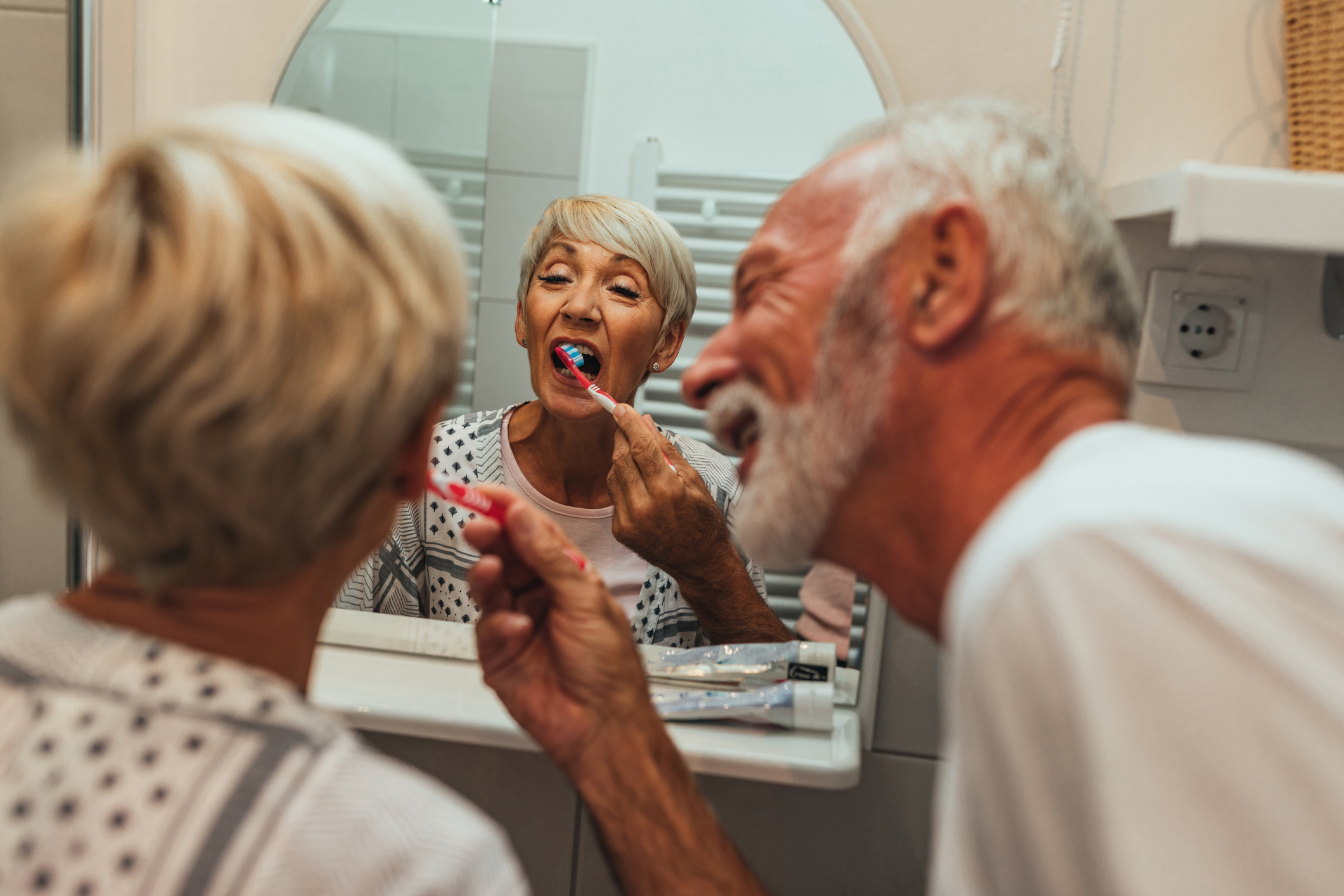Health Capsule
Oral Health Tips for Caregivers

Do you take care of an elderly parent or other older adult? If so, remember that a healthy mouth can help them enjoy food, chew better, eat well, and avoid pain and tooth loss.
Plaque puts a healthy mouth at risk. It can collect on teeth that aren’t brushed well. The buildup can cause bad breath, tooth decay, and gum disease.
Some older adults need to be reminded to brush and floss teeth. Others may need help actually getting it done.
You can take steps to help make brushing easier. For example, try a power or multiple-sided toothbrush. You can also modify the toothbrush handle to make it easier to hold.
If older adults need help, remember to wash your hands and wear disposable gloves before you begin. Use the “tell-show-do” approach. Tell them what you are going to do, show them, and then do what you’ve described.
Regular dental visits are important too. At a dental visit, you can ask for ways to help the person you care for.
NIH has a series of fact sheets to help caregivers learn more about protecting oral health in older adults.
NIH Office of Communications and Public Liaison
Health and Science Publications Branch
Building 31, Room 5B52
Bethesda, MD 20892-2094
Contact Us:
nihnewsinhealth@od.nih.gov
Phone: 301-451-8224
Share Our Materials: Reprint our articles and illustrations in your own publication. Our material is not copyrighted. Please acknowledge NIH News in Health as the source and send us a copy.
For more consumer health news and information, visit health.nih.gov.
For wellness toolkits, visit www.nih.gov/wellnesstoolkits.




